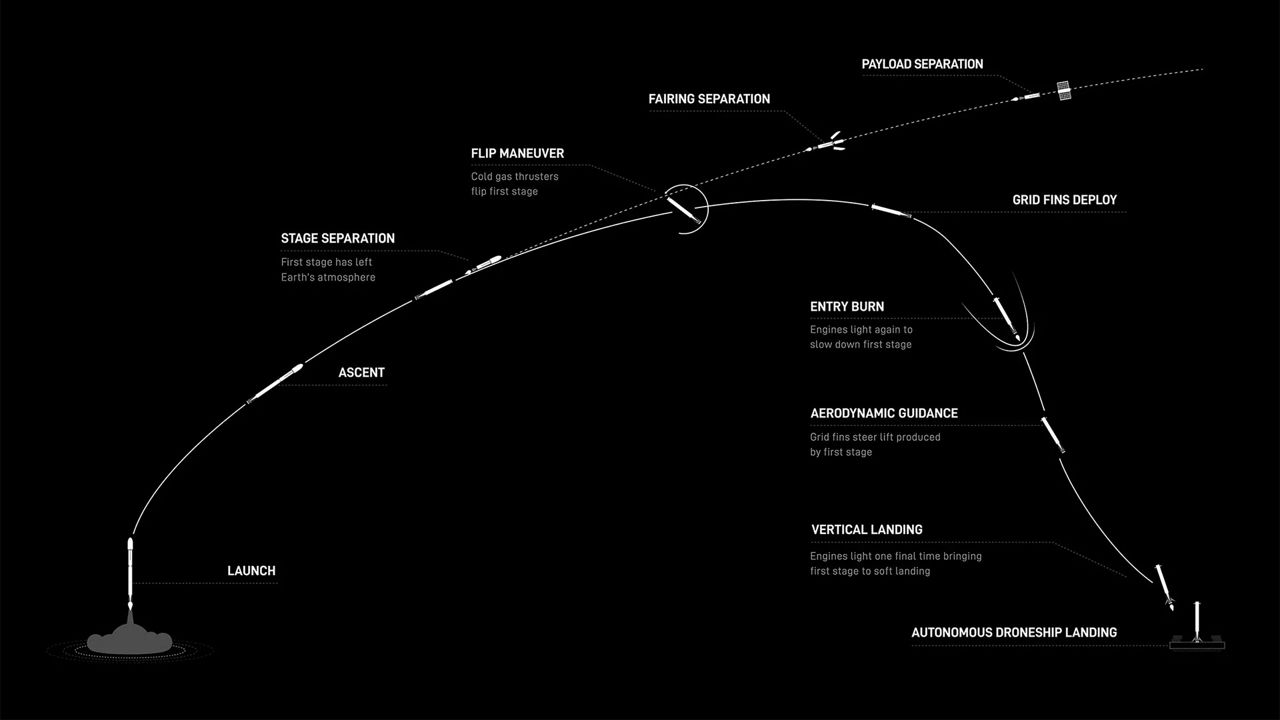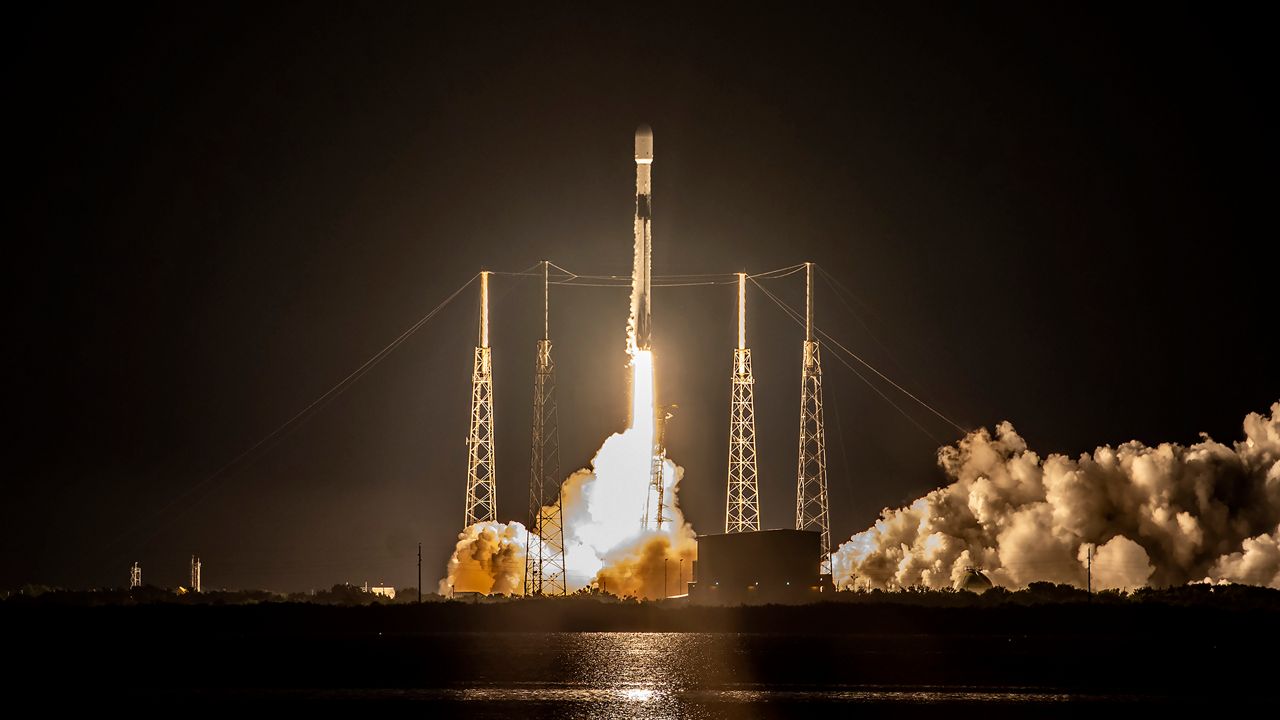CAPE CANAVERAL SPACE FORCE — SpaceX successfully launched more than 20 Starlink satellites late Sunday night, despite the concern of poor weather.
What You Need To Know
- SpaceX launched 22 Starlink satellites Sunday evening
- Get more space coverage here ▶
- 🔻Scroll down to watch the launch🔻
The company's Falcon 9 rocket lifted off at 10:41 p.m. ET from Space Launch Complex 40 at Cape Canveral Space Force base, confirmed SpaceX.
Weather was a concern for the launch. On Saturday, the 45Th Weather Squadron gave Sunday’s launch and Monday’s backup launch a "70%→20%" for the probability of violating weather constraints.
“Thus, the probability for weather violations will be rather high for both the primary day and backup day attempts, specifically during the front end of each window when active thunderstorms and their associated cloud cover are more likely to be in close proximity to the pad. Later in the window, thunderstorms are expected to diminish or move offshore, with remnant cloud cover gradually thinning,” the squadron stated.
The main concerns are the cumulus cloud, anvil cloud and surface electric fields rules for against the launch.
Learn more about NASA’s weather criteria for the Falcon 9 rocket here.
Going up
This Falcon 9 rocket’s first-stage booster, B1078, has only done three successful missions:
After the stage separation, the first stage of the Falcon 9 rocket landed on A Shortfall of Gravitas droneship that was out in the Atlantic Ocean.
Falcon 9’s first stage has landed on the A Shortfall of Gravitas droneship pic.twitter.com/5VzUyRUQks
— SpaceX (@SpaceX) August 7, 2023

About the mission
The Starlink 6-8 mission sent 22 Starlink satellites to low-Earth orbit, joining thousands that are already there.
The Starlink company, which is owned and operated by SpaceX, has stated that the satellites provide internet services to many parts of the world.
Before the launch, astronomer Jonathan McDowell of Harvard-Smithsonian Center for Astrophysics recorded the current information on the Starlink satellites:
- 4,540 are in orbit
- 4,508 in working order
- 3,814 are operational orbit




